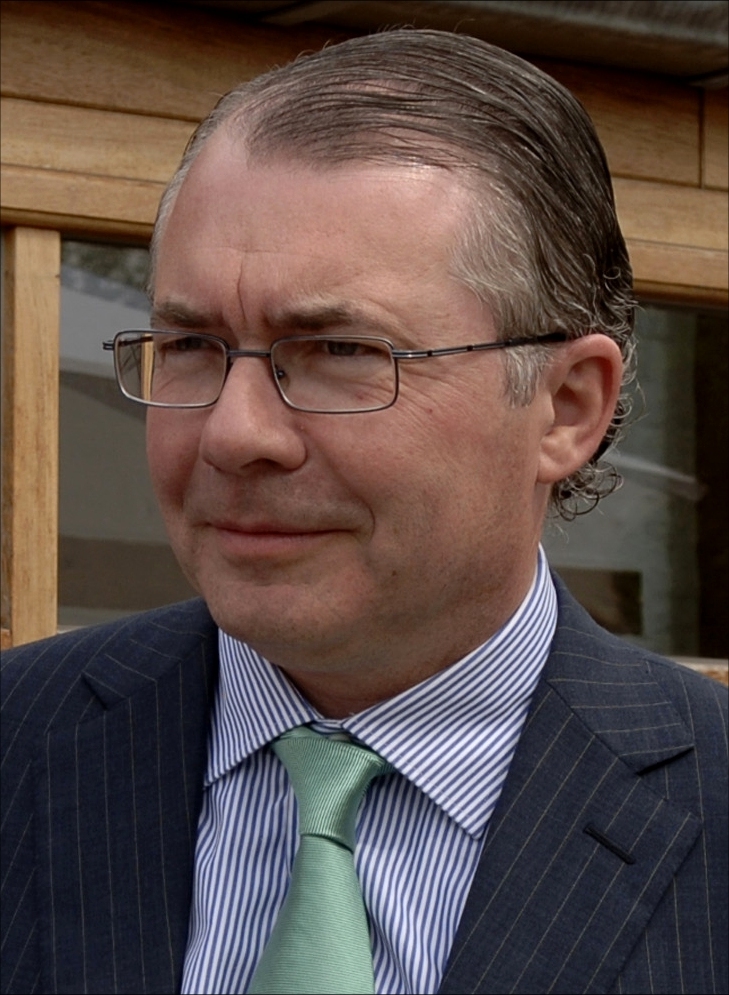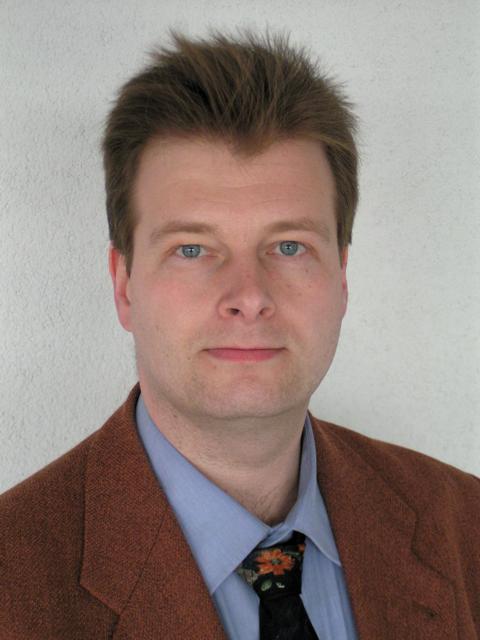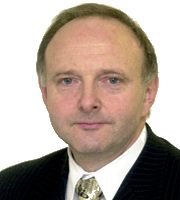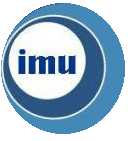Workshop
Towards Semantic Interoperability in eHealth
A half-day event for experts to explore paradigms, strategies and approaches towards a semantic interoperability vision in eHealth
Monday 12 March 2007
Venue: Crowne Plaza Hotel, Brussels, Belgium
Workshop hosted by the RIDE project and organised by the IMU unit of ICCS
We would like to thank all participants
to the RIDE workshop for making the event a real success!
This workshop is one of a series of workshops organised by the RIDE project (a project funded by the Information Society Programme of the European Commission). RIDE aims to develop a Roadmap for Interoperability of eHealth Systems.
The objective of the workshop was to reflect on and debate about the vision of semantic interoperability for eHealth Solutions. Several stakeholders will present their views for discussion in order to address multiple perspectives on this topic.
The results of the workshop will feed into the further activities of the RIDE Project and ultimately contribute to the shaping of future European Union in this area.
The workshop included a series of presentations, which were followed by an open discussion with participants moderated by partners of the RIDE project.
A workshop report, including the remarks received after the workshop will be prepared and will be distributed among the participants and the RIDE partners.
The RIDE project
The RIDE project (”A Roadmap for Interoperability of e-Health Systems in Support of COM 356 with Special Emphasis on Semantic Interoperability”) is a co-ordination action funded by the European Commission.
The project examines the European-wide state of the art in e-Health interoperability, identifies goals and challenges towards a European harmonisation of e-Health systems and develops a roadmap towards the introduction of interoperable e-Health solutions in a collaborative and co-ordinated way in Europe.
One special topic of interest for the RIDE project is the semantic interoperability of e-Health systems, i. e. the ability of systems to ”understand” and process the information exchanged. The project regularly organizes workshops in order to disseminate the results achieved so far and to gain feedback and further input from stakeholders involved in e-Health in Europe.
Agenda
|
12.00-14.00 |
|
|
14.00-14.05 |
|
|
14.05-14.30 |
|
|
14.30-15.00
|
|
|
15.00-15.30 |
|
|
15.30-16.00 |
|
|
16.00-16.30 |
|
|
16.30-17.00 |
|
|
17.00-17.30 |
|
| 17.30-18.15 |
|
|
18.15-18.30 |
|
Practical Information
Registration
-
The workshop is free of charge to the participants. However, the number of participants is limited.
-
Advance registration for the workshop is therefore required.
-
Places will be allocated in the order of registration. Please e-mail the organisers to register to the workshop.
Scheduling
The workshop was organized as a half-day event, allowing participants to travel to Brussels and leave again on the same day if required.
Venue
The workshop took place at the Crowne Plaza Hotel, Brussels City Centre, Rue Gineste 3, B-1210 Brussels, Belgium.
Speaker Bios
|
|
Gregoris Mentzas: Dr Gregoris Mentzas is a full professor of Information Management at the School of Electrical and Computer Engineering of the National Technical University of Athens (NTUA) and Director of the Information Management Unit (IMU), a multidisciplinary research unit at the University. During the 2006-2009 period he serves in the Board of Directors of the Institute of Communication and Computer Systems of NTUA. His area of expertise is information technology management and his research concerns the integration of knowledge management, semantic web and e-service technologies. |
|
|
Asuman Dogac: Dr. Asuman Dogac is a full professor of Department of Computer Engineering at the Middle East Technical University and the founding director of the Software Research and Development Center. She is a graduate of Department of Electrical Engineering, Middle East Technical University and was a post-doc at the University of California, Los Angeles in 1981. Her research interests are sensor data management and sensor infrastructures, semantic Web, agent infrastructures for e-Business, agent based workflow management systems, distributed object management, multi-database systems, object-oriented databases, interoperability of heterogeneous systems, query optimisation, and transaction processing. Prof. Dogac has also done consultancy work to the industry in these areas. |
|
|
John Davies: Dr John Davies leads the next generation Web research group at BT. His current interests centre around the application of Semantic Web technology to knowledge management, information retrieval and Semantic Web services. Dr Davies has written and edited many papers and books on Web-based information management, knowledge management and the Semantic Web. He has also served on the program committees of many conferences in related areas. Whilst working at BT he developed a set of knowledge management tools that are now marketed through Exago Ltd (www.exago.com), of which Dr Davies is Chief Technology Officer. He is a member of the British Computer Society and a Chartered Engineer. |
|
|
Dirk Colaert: Dirk was born in 1955 and lives in Damme, Belgium. He graduated in 1980 as MD at the University of Louvain, Belgium and practiced since then as a General Practioner. In 1983 he founded Aladin Computing, a medical software company. He was author and chief architect of "medAr", an Electronic Medial Record. Dirk stopped his GP practice in 1990 and worked full time for Aladin Computing. In 2000 Agfa HealthCare bought the company and since that time Dirk is working at Agfa. He worked as team lead of the medAr development team, as software architect and recently he became manager of the Advanced Clinical Application Research group at Agfa. His key topics are community healthcare and semantic web technology and one of the most important research projects in his group is called ‘Adaptable Clinical Workflow’. This project goes beyond classical ‘clinical pathways’ and is about an intelligent and federated workflow system using semantic technology, crossing the episodic and local hospital boundaries to come to a life long and regional healthcare system. |
|
|
Bernd Blobel: Prof. Blobel is Associate Professor and Head of the eHealth Competence Center at the University of Regensburg. He studied Mathematics, Technical Cybernetics and Electrical Engineering, Physics, Informatics and Medical Informatics in Magdeburg, Halle, Dresden and Berlin. Performing first research studies in the field of bioinformatics and neuro-physiology, he received his Ph.D. at the University of Magdeburg for his innovative work “On the mechanism of information processing and energy conversion in biological receptors – a general membrane structure related transducer model”. Joining the Magdeburg Medical School, he worked in the fields of environmental medicine as head of laboratory. He was founder and head of the Medical Informatics Department, Associate Professor and Director of the Institute for Biometry and Medical Informatics at the University’s Medical School. He acted for 30 years as Chief Information Officer at the University of Magdeburg Medical Center. He is also Associate Professor for Medical Informatics at the Faculty for Informatics at the University of Magdeburg. In 2004, he joined the Fraunhofer Gesellschaft as Founder and Head of the Health Telematics Project Group. As a result of this engagement, he became Founding Head of the German eHealth Competence Center (eHCC) at the University of Regensburg Medical Center. He is a fellow of the American College of Medical Informatics, Chair of the EFMI (European Federation for Medical Informatics) Working Groups “Electronic Health Records” and “Security, Safety and Ethics”, chairs the German Medical Informatics Association’s Working Group “Standards for Communication and Interoperability” and the German Data Protection and Security Society’s (GDD’s) Working Group “Security and Privacy in Healthcare and Social Affairs”, He is active in standardisation (architecture, modelling, communication, interoperability, EHR, security and privacy) as TC Chair and Taskforce Leader at HL7, ISO TC 215, CEN TC 251, ASTM and OMG/CORBA. He is Chair of the CEN/ISSS eHealth Standardization Focus Group and Member of the CEN/ISSS Forum. He is Board Member and Past-Chair of HL7 Germany and President of the German ProRec Center for promoting the EHR. |
 |
Gokce Banu Laleci Ertürkmen, METU, Turkey. Gokce Banu Laleci joined METU - SRDC in 2000. In METU - SRDC, she has been working as a research engineer and involved in several IST projects, namely IST-2000-26429 HERMES, IST-2000-31050 AgentAcademy, IST-2000-31046 HUMANTEC, IST-1999-20216 LEVER,INCO DC 97 2496 MARIFlow, MEDFORIST, IST-1-002104-STP SATINE, and IST-1-002103-STP Artemis. She has finalized her MsC. Thesis entitled as “A Platform for Agent Behavior Design and Multi Agent Orchestration” in 2003, and currently is a PhD student in Department of Computer Engineering, METU. Her research areas include: Semantic Web, Web Services, enriching semantics of UDDI, ebXML registries, Peer-to-Peer Computing, Agent Technologies. |
 |
Georges De Moor, President of EuroRec (European Institute of Health Records), Belgium. Professor Dr. Georges J.E. De Moor studied Medicine and specialised in Clinical Pathology and Nuclear Medicine at the State University of Ghent (Belgium), where he also obtained his PhD in Medical Information Science. He is head of the Department of Medical Informatics and Statistics at the State University of Ghent, Belgium, where he teaches Health Informatics, Medical Statistics, Decision Theory and Evidence Based Medicine. As president of RAMIT (Research in Medical Informatics and Telematics), he has been involved in both European and International Research and Development projects (+85), as well as in Standardisation activities. For seven years, Prof. De Moor acted as Founding Chairman of CEN/TC251, the official Technical Committee on standardisation in health informatics in Europe. Prof. De Moor has also founded a number of companies of which he is chairman or C.E.O. (e.g. MediBridge, Custodix, TeleTendo…). In 2004, he was elected President of the European Institute for Health Records (EuroRec). In Belgium, Prof. De Moor chairs a number of official Committees, among which the Health Telematics Committee of the Belgian Ministry of Health and Social Affairs, as well as a number of scientific and professional organisations. Dr. De Moor is also head of the Clinical Pathology Laboratory of the St-Elisabeth Hospital in Zottegem. He has edited seven books related to ICT in Health and published over 200 articles in scientific journals. |
 |
Marco Eichelberg, OFFIS, Germany. Dr. Marco Eichelberg is senior researcher at the Healthcare Information and Communication Systems R&D department of the OFFIS Institute for Information Technology in Oldenburg, Germany. He has been involved in healthcare IT research for more than 12 years, focussing on issues of communication, interfaces, standards, conformance and interoperability. He has contributed to a number of international research projects on telemedicine and cross-enterprise IT integration including the EU-funded projects RETAIN I-III, SAMTA, ARTEMIS, SAPHIRE and RIDE. He has been involved in standardisation activities in CEN/TC 251 and the DICOM committee, and currently acts as the IHE Technical Project Manager for IHE Germany as well as for the European IHE Cardiology activities. |
Venue
|
The workshop will take place at the Crowne Plaza Brussels City Centre Rue Gineste 3 B-1210 Brussels, Belgium T: +32 (0)2 203 62 00 F: +32 (0)2 203 55 55
|
Organisers
| Professor Gregoris Mentzas | Information Management Unit |
Workshop supported by the European Commission
|
Workshop supported: European Commission,
Information Society Programme Directorate H - ICT For Citizens and Businesses Unit H1 - ICT for Health |










